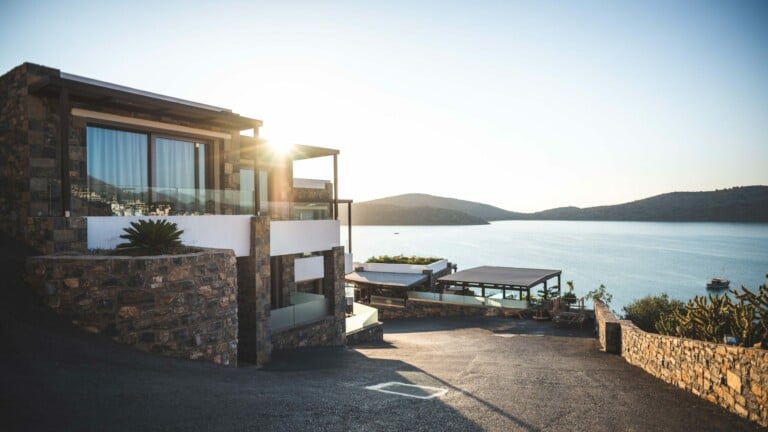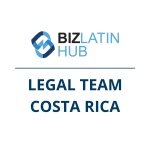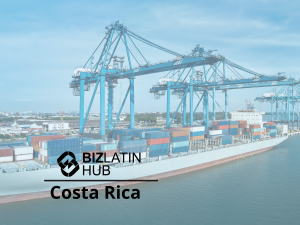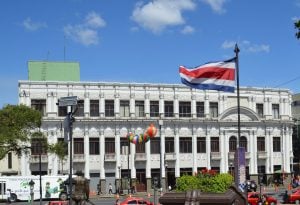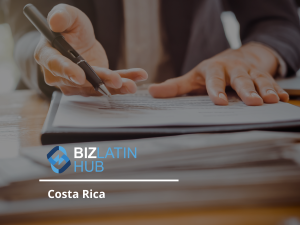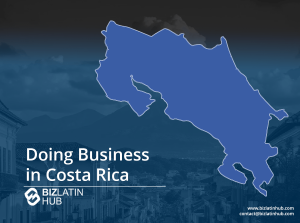Thinking about buying property in Costa Rica? You’re not alone. Many Americans are drawn to the lush landscapes, vibrant lifestyle, and investment opportunities that Costa Rica offers.
Whether you’re looking for a serene retirement spot, a vacation home, or an investment property, this guide is your starting point. We’ll walk you through the buying process, from securing financing to closing the sale, and dive into why Costa Rica’s real estate market is so appealing to Americans. Plus, we’ll cover the legal requirements, how to find the right property, and financial considerations to keep in mind.
With its stable democracy, growing economy, and welcoming community, Costa Rica offers a unique blend of natural beauty and investment potential. So, whether you’re dreaming of a beachfront villa or a mountain retreat, let’s explore what it takes to make that dream a reality.
What is the Process for Americans Buying Property?
The process for Americans buying property involves several key steps, tailored to ensure a smooth transaction and secure investment. Initially, the journey begins with securing financing, a crucial step for most buyers that involves obtaining a mortgage pre-approval from a bank or lending institution. This step not only clarifies the buyer’s budget but also positions them as serious contenders in the competitive real estate market.
Following financial pre-approval, the search for the perfect property commences. Buyers often enlist the expertise of a real estate agent, a move that offers access to extensive listings and valuable insights into market trends and property values. This professional guidance is instrumental in dealing the vast landscape of available properties, ultimately helping buyers identify a home that meets their criteria and budget.
Once a property is selected, the next step involves making an offer. This is a critical phase where negotiation skills come into play, often facilitated by the real estate agent. The offer includes not just the price but also terms and conditions of the sale, which, if accepted by the seller, leads to the signing of a purchase agreement.
This legally binding document outlines the specifics of the transaction, including any contingencies that must be met before the sale can proceed. The final stages of buying property in the U.S. involve due diligence, such as home inspections and appraisals, to ensure the property’s condition and value align with the agreed terms.
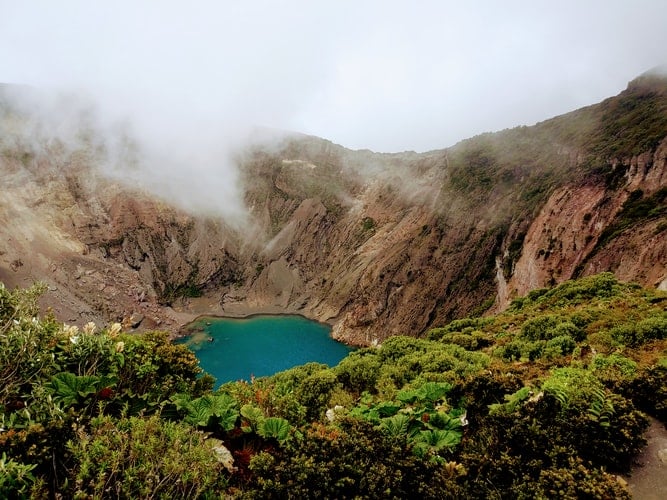
Closing the sale is the culmination of the process, where financial transactions are finalized, legal documents are signed, and the buyer officially becomes the property owner. This step is typically facilitated by a closing agent and involves a detailed review of all pertinent documents to ensure accuracy and legality. In essence, the process of buying property in the U.S. for Americans is a structured journey that requires financial preparation, diligent search, strategic negotiation, and thorough due diligence, all aimed at securing a valuable and legally sound investment.
Why Americans Buy Property in Costa Rica?
Americans are increasingly drawn to Costa Rica for a variety of compelling reasons, each underpinning the country’s appeal as a top destination for property investment. The allure of Costa Rica’s vibrant lifestyle and stunning natural beauty stands out as a significant draw for those envisioning a serene, tropical paradise for retirement. The nation offers a peaceful haven, characterized by its pristine beaches, lush rainforests, and a warm, welcoming community that embraces expatriates with open arms.
From an investment perspective, Costa Rica presents lucrative opportunities. The real estate market here has demonstrated consistent appreciation in value, making it an attractive proposition for investors aiming to diversify their portfolio. Factors such as the country’s stable democracy and growing economy further amplify confidence among American investors.
Moreover, the burgeoning tourism industry in Costa Rica opens doors for Americans seeking vacation homes or rental income properties. The potential to generate significant rental income, coupled with the country’s diverse attractions and easy access from the United States, positions Costa Rica as an ideal locale for owning a vacation home that doubles as an income source. In essence, the combination of natural beauty, economic stability, and a friendly expat community renders Costa Rica an enticing destination for Americans.
Whether the goal is to enjoy a laid-back lifestyle, seize investment opportunities, or secure a vacation property that offers rental income, Costa Rica stands out as a prime choice.
For Retirement and Lifestyle Change
Costa Rica is a prime destination for Americans seeking a retirement or lifestyle change, offering a peaceful ambiance, temperate climate, and lush landscapes. The cost of living is attractive compared to the U.S., with areas like the Central Valley and the Gold Coast being popular among expatriates for their vibrant communities and scenic beauty. The “Pura Vida” lifestyle promotes a content and relaxed way of living, ideal for retirees.
As an Investment Opportunity
The Costa Rican real estate market offers significant investment opportunities, with property values showing consistent appreciation. Areas like San José and the Pacific Coast have seen notable growth, providing investors with robust rental yields and capital gains. The country’s political stability and economic growth enhance its attractiveness as an investment destination.
For Vacation Homes or Rental Income
Costa Rica’s status as a tourist haven makes it perfect for vacation homes or rental income properties. Regions such as Guanacaste and Puntarenas are known for their high tourist traffic, offering property owners the chance to capitalize on the rental market. The average occupancy rates in these areas reflect a strong demand for vacation rentals, making it a lucrative investment.
Legal Requirements for Americans
For Americans venturing into the Costa Rican real estate market, understanding the legal requirements is crucial. Key among these is grasping the nuances of property zones. Specifically, the Maritime Zone involves stringent ownership regulations, distinguishing it sharply from Residential Zones, where such restrictions are less severe.
This knowledge is vital for Americans to ensure compliance and safeguard their investments. The role of a real estate attorney cannot be overstated in this context. Such a professional is indispensable for buying properties, including conducting legal checks and facilitating the property registration process.
A proficient attorney ensures the property is free of encumbrances, verifies the seller’s legitimacy, and confirms all necessary permits and approvals are in place. In essence, for Americans, a deep understanding of Costa Rica’s legal framework regarding property zones and the engagement of a skilled real estate attorney are fundamental steps for a legally secure property acquisition.
Understanding Property Zones
In the realm of Costa Rican real estate, property zones are pivotal in dictating the parameters within which Americans can purchase and own property. These zones are classified into distinct categories, each governed by a unique set of regulations. A clear comprehension of these zones is paramount for prospective buyers to identify properties that not only meet their investment criteria but also adhere to the legal stipulations of the country.
Maritime Zone vs. Residential Zone
The distinction between the Maritime Zone and the Residential Zone is crucial. The Maritime Zone, typically encompassing the area within 200 meters of the high-tide line, is subject to specific regulations that limit direct ownership by foreigners, including Americans. This often necessitates leasing land from the government.
Conversely, the Residential Zone, situated outside this coastal boundary, operates under standard property ownership laws, permitting a more straightforward acquisition process for foreigners. Understanding the contrast between these zones is essential for Americans to determine the types of property they can outright own versus those they may only lease.
The Role of a Real Estate Attorney
Securing the expertise of a real estate attorney is indispensable for the Costa Rican property buying process. These professionals offer invaluable advice on the intricacies of local property laws and ensure that all transactions are conducted in compliance with Costa Rican legal standards. Their responsibilities extend to elucidating the implications of property zones, aiding in contract negotiations, and facilitating comprehensive due diligence.
For Americans looking to purchase property in Costa Rica, enlisting a seasoned attorney is a critical step towards a successful and legally sound acquisition.
Legal Checks and Property Registration
Conducting legal checks and completing property registration are fundamental components of securing property ownership in Costa Rica. Legal checks involve a thorough examination of the property’s title to confirm there are no existing liens or encumbrances and validating the seller’s legal authority to sell. Successful completion of these checks paves the way for property registration, which officially documents the transfer of ownership.
This process, culminating in the recording of the sale with the National Registry, is indispensable for establishing legal ownership and safeguarding the buyer’s investment.
Finding the Right Property
Embarking on the quest to find the right property in Costa Rica involves a blend of diligent research and strategic exploration. A practical starting point is leveraging online listings, which provide a broad spectrum of properties at your fingertips. These platforms are invaluable, not just for their extensive property showcases but also for the insights they offer into market trends and pricing.
This initial step allows potential buyers to effectively narrow down their search based on specific criteria. Websites and virtual tours have revolutionized the property search process, emerging as crucial tools for prospective buyers. They offer the convenience of exploring properties in detail, understanding their layout, condition, and the ambiance of the surrounding area, all without the need for immediate physical visits.
This is especially advantageous for international buyers aiming to make informed decisions remotely. Engaging with real estate agents who have a track record of assisting expatriates adds a personalized touch and a layer of expertise to the property search. Opting for an agent well-versed in the preferences and needs of Americans ensures a more focused search, targeting properties that align with location desires, budget limitations, and pertinent legal requirements.
These agents are indispensable allies, guiding buyers through the intricacies of Costa Rica’s real estate landscape. The significance of conducting property tours and inspecting the property and neighborhood cannot be overstated. These physical inspections are pivotal, offering buyers the chance to evaluate the property’s condition firsthand, gauge the community vibe, and truly envisage their future in the locale.
Using Online Listings Effectively
Popular and reliable websites for Costa Rica real estate listings include Encuentra24, Costa Rica MLS, and Point2Homes. These platforms offer comprehensive search tools that allow users to filter properties by location, price, type, and more, making it easier to find properties that match specific needs.
Websites and Virtual Tours
Examples of real estate agencies or platforms offering comprehensive virtual tours include Blue Zone Realty International and Coldwell Banker Costa Rica. These sites provide immersive virtual experiences, allowing potential buyers to explore properties in detail from anywhere in the world.
Working with Real Estate Agents
When working with real estate agents in Costa Rica, look for qualifications such as membership in the Costa Rican Real Estate Agents Board (CCCBR) or certifications from recognized international real estate organizations. These credentials indicate a level of professionalism and knowledge of the local market.
Choosing an Agent Familiar with Expat Needs
Criteria for selecting an agent familiar with expat needs include experience with American clients, fluency in English, and a strong understanding of the legal and financial aspects of buying property in Costa Rica as a foreigner. An agent with a good track record of helping expats can navigate the unique challenges and requirements they face.
Conducting Property Tours
During property tours, ask about the property’s water source, any known issues with land stability or flooding, and the history of the property’s maintenance. Also, inquire about the community, such as access to healthcare, shopping, and entertainment, to ensure it fits your lifestyle.
Inspecting Property and Neighborhood
Common issues to inspect for in Costa Rican properties include the condition of the roof, signs of water damage, the age and condition of plumbing and electrical systems, and any signs of pest infestations. Additionally, assess the neighborhood for safety, noise levels, and proximity to essential services.
Financial Considerations in the Purchase
The financial considerations is a critical component of purchasing property in Costa Rica. A key initial step for foreigners is the establishment of a bank account within the country, which not only simplifies transactions but can also offer more advantageous conditions for property acquisitions. It’s crucial to understand the required documents and residency status necessary for this process, as they can differ significantly from the requirements in the United States.
The transfer of funds internationally is another vital consideration. Buyers are faced with the choice between bank wire transfers and foreign exchange services, each with its own set of advantages and limitations. Factors such as exchange rates, transaction fees, and processing times are important to consider, as they directly impact the efficiency and cost-effectiveness of the transfer.
Furthermore, a thorough understanding of the taxes and fees associated with property purchases in Costa Rica is indispensable. This includes being knowledgeable about property tax, transfer tax, and legal fees. These financial obligations can vary and significantly affect the total investment needed for the property purchase.
Opening a Bank Account in Costa Rica
| Requirement | Description |
|---|---|
| Valid Passport | A current passport is required as proof of identity. |
| Proof of Income | Documentation showing income sources or financial stability. |
| Proof of Residency (if applicable) | Some banks may require proof of Costa Rican residency, although non-resident accounts are also available. |
Transfer of Funds Internationally
| Method | Pros | Cons |
|---|
| Bank Wire Transfers | – Secure and direct | – Higher fees |
| Bank Wire Transfers | – Widely accepted | – Less favorable exchange rates |
| Foreign Exchange Services | – Competitive exchange rates | – May require additional setup time |
| Foreign Exchange Services | – Lower fees | – Not all services are available in every country |
Understanding Taxes and Fees
| Type of Tax/Fee | Description | Average Rate/Cost |
|---|---|---|
| Property Tax | Annual tax based on the property’s registered value. | Approximately 0.25% of the property value |
| Transfer Tax | One-time tax paid at the time of purchase. | Approximately 1.5% to 3.5% of the property value |
| Legal Fees | Fees for legal services during the transaction. | Typically 1% to 2% of the property value |

The Purchasing Process
The purchasing process in Costa Rica requires a methodical approach, starting with making an offer on a chosen property. This crucial step often involves negotiation to reach a mutually acceptable price and terms. The formulation of an offer letter and a deposit agreement marks the beginning of the formal acquisition process.
Upon acceptance of an offer, the next critical phase is conducting due diligence. This includes detailed property inspections and a title search to ensure the absence of liens, encumbrances, and legal issues that could obstruct the sale. It serves as a protective measure for the buyer’s investment.
The culmination of the purchasing process is closing the deal, a phase that finalizes the payment and legal formalities of the property transaction. This stage can involve complex international fund transfers and adherence to Costa Rican property transaction laws. The property registration with the appropriate authorities signifies the official transfer of ownership, establishing the buyer’s legal rights to the property.
| Step in Process | Description | Key Considerations |
|---|---|---|
| Making an Offer and Negotiation | Initial step involving negotiation to reach a mutually acceptable price and terms. | Understanding of property’s market value; negotiation skills. |
| Offer Letters and Deposit Agreements | Formalization of the offer terms and securing the buyer’s commitment. | Details of the purchase price and conditions; financial deposit. |
| Conducting Due Diligence | Verification of the property’s legal status, condition, and local regulations adherence. | Property inspections; title search for liens or ownership disputes. |
| Property Inspections and Title Search | Evaluation of the physical state and legal barriers to the sale. | Accredited professionals or companies for inspections; comprehensive title search. |
| Closing the Deal | Finalization of the sale and transfer of ownership. | Execution of legal documents; completion of financial transactions. |
| Final Payment and Property Registration | Secure financial transaction and official documentation of ownership change. | Conditions set forth in the deposit agreement; property registration with local authorities. |
Common Pitfalls to Avoid
The Property market in Costa Rica comes with potential pitfalls that can hinder the transaction’s success and overall satisfaction with the investment. A critical mistake is not hiring a reputable real estate attorney, which can lead to overlooked legal complexities and future disputes. The value of professional legal advice is paramount, ensuring compliance with local laws and safeguarding the buyer’s interests.
Another significant oversight is ignoring due diligence. This essential step uncovers legal or physical issues with the property that could lead to disputes or additional costs. Similarly, overlooking property inspections can result in unforeseen repair expenses or diminish the property’s value, impacting the investment’s viability.
Underestimating total costs involved in the purchase and upkeep of the property is a common error. Buyers must account for the purchase price, taxes, legal fees, and maintenance costs to avoid financial difficulties. By recognizing these pitfalls and taking steps to avoid them, buyers can enhance their chances of a successful and fulfilling property acquisition in Costa Rica, ensuring their investment is both secure and rewarding.
Not Hiring a Reputable Real Estate Attorney
Neglecting to enlist a reputable real estate attorney can be a significant oversight in the property purchasing process in Costa Rica. Such attorneys are instrumental in dealing with local real estate laws and ensuring that all legal aspects of the transaction are meticulously managed, safeguarding the buyer’s interests.
Importance of Legal Advice in Property Deals
The importance of legal advice in property transactions is paramount. Professional legal counsel is crucial for identifying and resolving potential legal issues early in the process, thereby ensuring a seamless and secure property acquisition. This advice is a key factor in mitigating the risks associated with property deals.
Ignoring Due Diligence
Ignoring due diligence is a grave mistake that can unveil unforeseen legal and financial risks. Comprehensive due diligence checks into the property’s legal status, physical condition, and regulatory compliance are essential. They help reveal any issues that could adversely affect the purchase or future ownership of the property.
Risks of Overlooking Property Inspections
The risks of overlooking property inspections include missing hidden defects or maintenance issues that could lead to substantial future costs. Property inspections are critical for assessing the property’s condition, identifying necessary repairs or improvements to ensure it meets the buyer’s standards and expectations.
Underestimating Total Costs
Underestimating total costs related to the purchase and ownership of property in Costa Rica can lead to unexpected financial burdens. Buyers must account for not only the purchase price but also additional expenses, including taxes, legal fees, and ongoing maintenance costs, which can significantly affect the property’s overall affordability.
Budgeting for All Purchase and Maintenance Costs
Proper budgeting for all purchase and maintenance costs is vital for a successful property investment. This encompasses planning for initial expenses such as the purchase price and legal fees, as well as ongoing costs like property taxes, insurance, and regular maintenance. Such thorough financial planning ensures the long-term viability of the property investment.
| Cost Category | Description | Estimated Range or Percentage |
|---|---|---|
| Purchase Price | Cost of the property itself. | Varies by location and property type. |
| Legal Fees | Fees for legal services during the transaction. | 1-3% of the purchase price. |
| Transfer Tax | Tax applied to the transfer of the property. | 1.5-2.5% of the purchase price. |
| Property Tax | Annual tax based on the property’s registered value. | 0.25% of the registered value. |
| Maintenance Costs | Ongoing costs for upkeep and repairs. | Varies widely depending on property size and condition. |
| Utilities | Monthly costs for water, electricity, internet, etc. | Varies by usage and services. |
| Insurance | Property insurance against damage or liability. | Depends on property value and coverage level. |
| Homeowners Association Fees | If applicable, for properties in managed communities. | Varies by community services and amenities. |
How Biz Latin Hub Can Help You Buy Property in Costa Rica
Buying property in Costa Rica as an American involves legal requirements, financial considerations, and property regulations unique to the country. At Biz Latin Hub, we offer expert guidance to simplify the process and ensure your investment is secure.
Our team can connect you with trusted real estate attorneys, assist with due diligence, and provide insights into property zones, taxes, and financial planning. Whether you’re looking for a retirement home, an investment property, or a vacation retreat, we have the expertise to support your goals.
Ready to take the next step? Contact our team to learn how we can help you achieve a smooth and successful property acquisition in Costa Rica.
